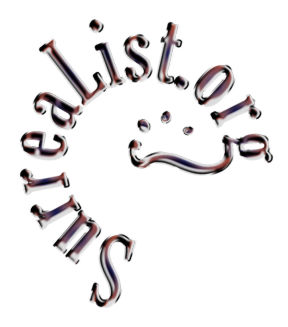
Hexagram Forty-two—Enlargement
When citizens are productive and work for the good of all, there will be prosperity and happiness. When the government is good, it uses people's tax money to enhance the standard of living for all. This creates a cycle of prosperity between the people and their government.
The first line, yang, shows there will be great success in profitable endeavors meant for the public good. Such projects employ people in honest work that will benefit everyone involved.
The second line, yin, shows outside parties willing to invest in these ventures. When wise people see the value in the work, which is confirmation of the project's merit.
The third line, yin, explains that sometimes honest, decent people invest for greedy motives. Although this is not the best condition, such deals have always existed in the course of human affairs.
The fourth line, yin, shows one who offers sound advice to the government, and because it is well-thought out and well-presented, their advice is followed. Such a person becomes a valuable citizen.
The fifth line, yin, shows one of pure heart and mind who uses their life for the benefit of all people. Such a person is blessed by everyone.
The sixth line, yang, shows the opposite, someone who cannot cooperate with anyone, who has no sense of justice or humanitarianism. Such a person is unfortunate.
Hexagram Forty-two Commentary
This hexagram describes enlargement, the opposite of the previous hexagram, reduction. The introduction discusses community and the advantages when people join their efforts together. It says, When the government is good, it uses people's tax money to enhance the standard of living for all." Good governance can create "a cycle of prosperity between the people and their government." We see examples of this in the world today, but the idea of leaders working for the good of the people is an eternally desirable situation.
The first line yang, explains the potential for good when people and their leaders work together on public projects. "Such projects employ people in honest work that will benefit everyone involved."
The second line, yin, shows private parties willing to invest in public projects. In today's terms it could be through US Savings Bonds or municipal bonds, but in ancient times there must have been something similar. The line adds, attracting investors confirms the project's value.
The third line, yin, says "sometimes honest, decent people invest for greedy motives." Although there's money to be made, the line suggests good people will invest just to show support. The line concludes, "such deals have always existed in the course of human affairs."
The fourth line, yin, shows another positive feedback loop with the government. The subject of the fourth line writes up a "well-thought out and well-presented" bit of advice, and the government uses it for good. The person who can offer good advice to the leaders is a valuable citizen.
The subject of the fifth line, yin, is another example of a valuable citizen. This is a person "of pure heart and mind" who lives their life to benefit all people. A person like this is blessed, and the work they do blesses others.
The sixth line, yang, shows the opposite attitude. The subject of this line cannot cooperate, has no sense of truth, or humanitarianism. This is unfortunate for the person with these attitudes and bad habits.
To the reader: Most of the hexagrams have at least one line that predicts bad results, but that does NOT mean you are fated to that result. The hexagrams illustrate different attitudes, so study the actions and reactions to learn the attitudes that will lead to better outcomes.
The I Ching teaches you to flow with changes and create positive change from the inside through conscious living. Your future is in your hands. Consult the I Ching for ideas that lead to clear thinking and positive mental attitude. Reading the I Ching helps you take the time to reflect on your attitudes and ideas. Continue asking until you feel positive about your course.

Click here for another hexagram.
A note about this interpretation of the I Ching: Nori Muster wrote this version of the I Ching in 1994 and put it online at Surrealist.org in 2000. It is also available at Amazon:
e-book
paperback
